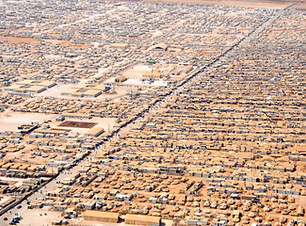The sayings, proverbs and cultural myths of a society reflect its values and traditions. People live through these legends and believe in their authenticity, but do not always act in accordance with them. Many people use these sayings regularly without thinking about their real meanings.
The Turkish saying ‘God’s Guest’ refers to a guest who arrives unexpectedly. The saying reflects the Turkish veneration of hospitality, and the importance of providing welcome to strangers in Turkish culture. All guests, particularly unexpected ones, are seen as blessings in Turkish culture. This tradition has religious roots and comes from the Islamic belief that guests are a gift from God. In the Qur’an, guests are venerated as angels and many verses are devoted to hospitality. Most Turkish people are Muslim and consider hosting guests to be a form of worship. Additionally, the importance of guests is also tied into the nomadic heritage of Turkish people. The expression of ‘God’s Guest’ also contributes to the discourse of ‘Turkish people are hospitable’, which has been widely reproduced by touristic centres, institutions, and the media. It is not only an individual attitude but also a public attitude that is adopted and intentionally propagated by both individuals and organisations.
However, this attitude is not extended to all those arriving in Turkey. Turkey has been both a destination country and a transit country for migrants and refugees for hundreds of years. Recently, Turkey has been a key destination country in the refugee crisis resulting from the Syrian Civil War and other regional conflicts. Over four million refugees currently reside in Turkey. This has greatly impacted the country, both in terms of domestic politics, economy, and social life, as well as in terms of its international standing. It has also impacted the discourse around hospitality and the ‘God’s Guest’ tradition in Turkey. While newly arrived refugees and migrants were initially well received, when it seemed that their stay in Turkey would be temporary, they were no longer treated with the hospitality normally given to guests as the crisis grew increasingly intractable.
This migration of people to Turkey over the past ten years has changed the traditional concept of ‘God’s Guest’ for Turkish people. In the beginning, Turkish people treated newcomers who fled war and bad living conditions well. However, this began to change when it became apparent that the newcomers were in Turkey to stay, and public opinion turned against them. As employers are able to pay refugees and migrants less, local informal workers have sometimes been replaced. There have been integration problems and media outlets in Turkey often report stories of cultural conflict as a result of the influx of people. Refugees began to face discrimination in many regions of the country. For example, the mayor of the town of Bolu, which hosts immigrants and refugees from many countries, began to charge Syrians ten times more for water than local residents, as well as issuing warnings that Syrian refugees should be home by 9 pm, not overuse spices, and not walk in groups in public areas such as parks, gardens, and city squares.
As it is seen, for Turkish people the concept of ‘God’s Guest’ is suitable only for those who are visiting for a limited time. If a certain group stays for an unexpectedly long period of time, then, contrary to the tradition, they are not accepted as God’s Guests anymore.

Damla Mursül
I am a lecturer in the Department of Political Science and Public Administration at Nuh Naci Yazgan University in Turkey (d.kabakusak@gmail.com). Political participation, local politics, migration, ethnic identities, Meskhetian Turks and the other micro nationalities are among the subjects of my interest. Besides all this, I enjoy playing with my little son and travelling with my unique family.








